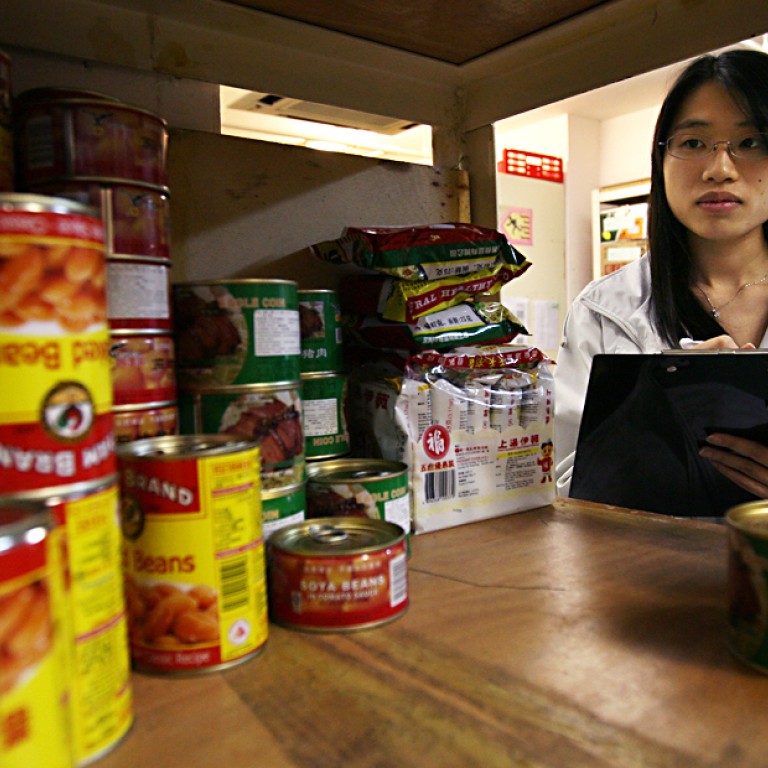
Graft-busters target Hong Kong food banks
Graft-busters target poverty alleviation programmes in effort to cut cost of welfare
Graft-busters will set their sights on poverty alleviation programmes as government welfare spending continues to increase.
The Independent Commission Against Corruption says it wants to ensure that public money allocated to the poor is really spent on them.
"We will be conducting research with the aim of producing more anti-corruption guidelines for NGOs, social services and welfare providers," the ICAC's principal corruption prevention officer, George Hui Chung-ming, said. "Especially those involving cash handouts - they are more susceptible to corruption."
The agency has already handed out guidelines on preventing corruption to the eight government-supported food banks.
Reselling food and food coupons for a profit was one easy way to abuse the programme, Hui said. Another was for food bank workers to buy goods in bulk from certain merchandisers in return for personal gain.
"With the ICAC's experiences in anti-corruption, we hope to help NGOs take the necessary precautionary measures to prevent any misuse of public funds and to more effectively help the poor," said Hui.
Reported corruption cases involving food banks number fewer than 50.
St James' Settlement food bank service manager Connie Ng Man-yin said most cases involved only small amounts, such as a recipient obtaining food only to give to a neighbour.
She said the system was susceptible to misuse.
"If you take St James' as an example, we have six district food bank offices partnering over 120 outlets. It can get hard to keep track of the food inventory, the cash coupons and the records."
St James' Settlement had compiled a manual for partner organisations, and the new ICAC guidelines would help in streamlining the system and checking for holes, Ng said.
Social Welfare spending took up 19.1 per cent of the government's recurrent expenditure in the current financial year.
Spending is to rise in 2014-15.
